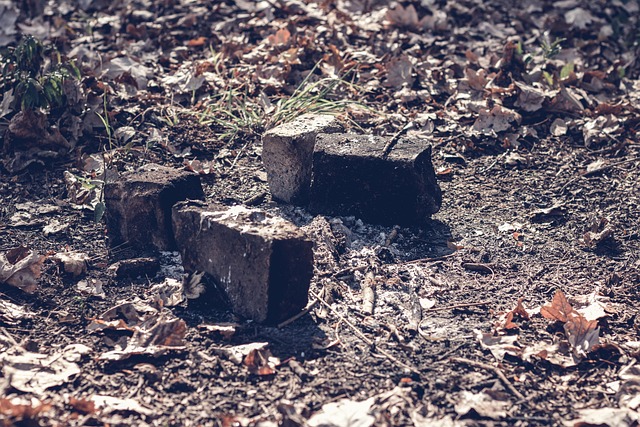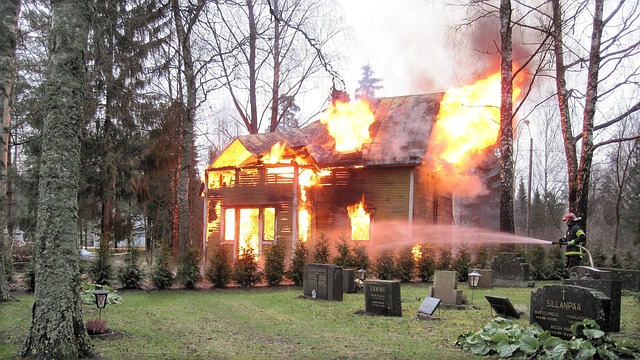Fire Damage Repair Estimates & Selling Your House After a Fire in California
Navigating fire damage repair in California post-fire can be daunting, but engaging reputable profes…….
In the aftermath of a devastating fire, homeowners often find themselves facing a daunting task: rebuilding or considering a fresh start. California, with its diverse landscapes and vibrant communities, has witnessed an increasing trend in the post-fire real estate market—the “Sell House After a Fire” approach. This phenomenon involves the strategic sale of properties following a fire, allowing owners to recover financially while adapting to new circumstances. This article aims to provide a comprehensive understanding of this concept, its implications, and the steps involved in successfully navigating the process. By delving into various aspects, from economic considerations to technological advancements, readers will gain valuable insights into the complex world of selling homes after a fire in California.
Definition: “Sell House After a Fire California” refers to the strategic decision by homeowners or property owners to sell their insured properties following a fire incident. This process involves navigating the insurance claims, rebuilding efforts, or exploring alternative living arrangements while maximizing financial recovery through a well-timed real estate transaction.
Core Components:
Insurance Claims: The initial step involves filing an insurance claim for the damaged property. Understanding the scope of coverage and negotiating with insurers is crucial to determining potential compensation.
Assessing Damage: A thorough inspection of the property damage is essential. This process helps in creating a detailed report, which can influence the valuation and rebuilding plans.
Valuation: Post-fire properties require unique valuations. Real estate professionals specialized in such scenarios assist in determining the market value, considering both the remaining structure and potential rebuilding costs.
Decision to Sell: Homeowners may choose to sell for various reasons, including financial recovery, desire for a new location, or the emotional toll of rebuilding. This decision is often made with the guidance of legal and real estate experts.
Historical Context:
The concept of selling homes after disasters is not new, but its prominence in California’s real estate market has evolved over time. Historically, natural calamities like wildfires have led to significant shifts in housing patterns. Post-fire sales have been a way for communities to rejuvenate and rebuild, especially in regions with robust insurance systems and supportive government policies. California’s diverse climate and terrain, coupled with its strong homeownership culture, have contributed to the growing popularity of this approach.
The “Sell House After a Fire” trend is not limited to California; it has global implications, particularly in regions prone to wildfires, hurricanes, and other natural disasters. Internationally, this phenomenon has sparked interest among urban planners, policymakers, and real estate professionals for several reasons:
Rehousing and Relocation: Post-disaster sales facilitate the relocation of affected residents, providing an opportunity for fresh starts in safer locations.
Community Regeneration: In many cases, selling damaged properties can stimulate local economies and contribute to the regeneration of affected areas.
Policy Development: Governments worldwide are studying this trend to inform disaster recovery policies, ensuring that housing markets are resilient and support affected communities effectively.
Regional Trends:
North America: The United States, including California, has seen a notable rise in post-fire sales, especially in states with frequent wildfire activity like Texas and Oregon.
Europe: In countries like Greece and Italy, where forest fires are common, there is growing interest in creating flexible housing policies to accommodate post-disaster sales and rebuilding efforts.
Australia: With a history of devastating bushfires, Australia has developed robust insurance systems and relocation programs to support homeowners, leading to a well-established market for post-fire property sales.
The economic aspects of selling homes after a fire are multifaceted and play a significant role in shaping California’s real estate landscape:
Short-term Fluctuations: Post-fire sales can impact local housing markets, causing temporary price adjustments due to the supply-demand imbalance.
Long-term Recovery: However, in many cases, rebuilding and relocation efforts stimulate economic growth, leading to increased property values over time.
Real Estate Investors: The trend attracts investors who specialize in post-disaster properties, seeing them as opportunities for profit due to potential discounts on insured properties.
Local Markets: Native homebuyers often prioritize purchasing damaged properties within their communities, fostering local market stability and recovery.
Selling homes after a fire contributes to California’s overall economic resilience by:
Facilitating Recovery: Insurers benefit from the process as it allows them to settle claims efficiently, reducing long-term financial risks.
Stimulating Construction: Rebuilding efforts create employment opportunities and boost construction industry growth.
Community Revitalization: The influx of new residents and investments can revitalize affected areas, leading to improved local economies.
Technology plays a pivotal role in modernizing the post-fire real estate process:
Digital Insurance Claims: Online insurance claim filing systems streamline the initial process, allowing for faster assessments and settlements.
Drone Inspections: Drones equipped with high-resolution cameras are used to inspect damaged properties, providing detailed aerial views for comprehensive damage assessments.
Real Estate Platforms: Specialized online marketplaces connect homeowners seeking to sell post-fire properties with buyers, making the process more accessible and efficient.
Data Analytics: Advanced data analytics help in predicting property values, identifying market trends, and assisting insurers and real estate agents in making informed decisions.
Navigating legal aspects is crucial when selling homes after a fire:
Insurance Contracts: Homeowners must thoroughly review their insurance policies to understand coverage limits and requirements for filing claims.
Local Regulations: California’s local governments have specific zoning and building codes that must be followed during rebuilding or relocation efforts.
Legal Assistance: Engaging attorneys specializing in real estate and disaster recovery can provide guidance on contracts, negotiations, and legal rights.
Here is a simplified guide for homeowners considering the “Sell House After a Fire” approach:
Assess Damage and File Claims: Document the property damage and file insurance claims promptly.
Consult Experts: Engage real estate agents with experience in post-fire sales and attorneys to understand legal implications.
Valuation: Obtain professional appraisals to determine the current market value of the property.
Market Your Property: List your home on relevant platforms, highlighting any unique features or advantages post-fire rebuilding may offer.
Negotiate and Accept Offers: Review offers carefully, considering financial needs, timing, and potential rebuild plans.
Complete Transactions: Ensure all legal documents are in order and finalize the sale with the new buyer.
Relocate or Rebuild: Depending on preferences and financial considerations, proceed with rebuilding, downsizing, or relocating to a new property.
While selling homes after a fire offers numerous benefits, there are challenges to be aware of:
Timing: The process can take several months or even years, depending on insurance approvals, market conditions, and rebuilding plans.
Emotional Stress: Dealing with a loss and navigating complex procedures can be emotionally taxing for homeowners.
Market Volatility: Market fluctuations may impact property values during the sales period.
Regulatory Compliance: Adhering to local zoning laws and building codes is essential to avoid legal issues.
Selling homes after a fire in California is a complex yet powerful tool for homeowners and communities to recover and rebuild. By understanding the process, leveraging technology, and seeking professional guidance, owners can navigate this challenging time effectively. This approach not only facilitates financial recovery but also contributes to the resilience and regeneration of affected areas. As California continues to face natural disasters, embracing innovative solutions like post-fire real estate strategies will be crucial for a more adaptable and sustainable future.

Navigating fire damage repair in California post-fire can be daunting, but engaging reputable profes…….

Selling a house after a fire in California demands addressing water damage, a common byproduct of fi…….

After experiencing a home fire in California, selling your property requires understanding fire dama…….

Post-fire water damage in California homes presents unique challenges due to climate and wildfires……..

After a fire in California, homeowners must navigate a complex process involving fire damage repair…….

Restoring your home after a fire in competitive California real estate markets is crucial for both s…….

Selling a house after a fire in California presents challenges, but also opportunities due to shifti…….